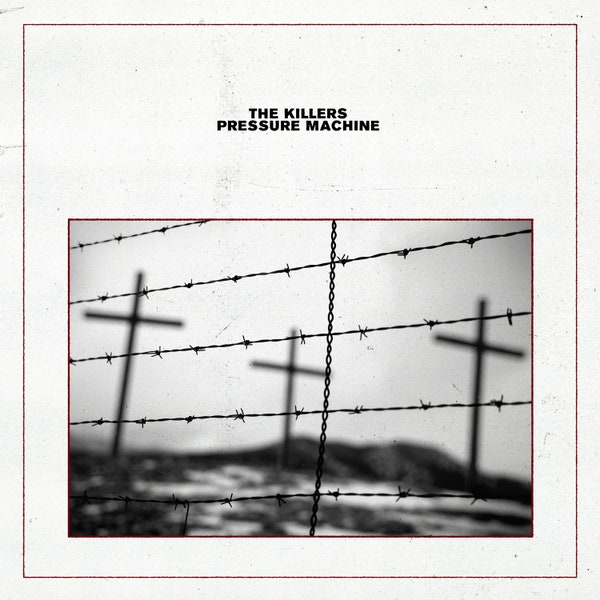The Killers are a band that, like it or not, has solidified their position as one of the most prolific rock bands of the 2000s to today. You can still go into nearly any bar in America and expect to hear their smash hit “Mr. Brightside” played at some point throughout the night. And when it is played, you can expect everyone in the joint to drop what they’re doing and sing along.
The Killers have always had a certain knack for crafting these stadium-suited, anthemic tracks. On almost every record the band has released since their triumphant debut, they’ve followed a similar formula, attempting to create a bigger, increasingly monumental sound. While they’ve succeeded plenty of times, such as on “Read My Mind” from their sophomore LP, they can also veer into a formulaic sound. At their most satisfying, The Killers lean into their pop influences, but at their weakest points it seems the band is reaching too far to find their next stadium rock hit, stretching out what could be strong songs into occasionally bloated ballads whose triumphant spirit falls flat.
But the band has garnered enough hits over the years that they could easily resign the rest of their careers to greatest hit tours, reliving the Rockstar dreams they’ve professed night after night. Except on ‘Pressure Machine’, frontman Brandon Flowers shows us that he is still invested in his creative process.
‘Pressure Machine’ is a concept album centering around Flowers’ childhood home in Nephi, Utah. The album opens with recordings from the Nephi locals, who describe the small-town atmosphere as one that pushes both conformity and support for the community. We are immediately inducted into an image of a town that is wary of change and where people rarely leave. This intro puts Flowers’ portrayal of his hometown in an interesting position, as an outsider returning to this place with familial and emotional connections that still run deep.
This is probably the most introspective album the band has ever made. We’ve become accustomed to the Killers’ forward-thinking ethos, where the glory days are just on the horizon, so close you can reach out and touch them. But on ‘Pressure Machine’, Flowers reflects on this place he grew up in, exploring it with the fresh eyes that have come from spending years away from home. He does this by telling the stories of the people he grew up with, which are often plagued by violence and sorrow. Flowers crafts these tales with a defined Springsteen and R.E.M influence, incorporating elements of americana and electronic music into the traces of their opulent rock sound.
On “Quiet Town” Flowers reflects on the social forces impacting this community, from an aging population to the opioid epidemic. On this track, he explores these problems without offering his opinions on them, instead pointing out a simple truth: bad things happen to good people. On “Desperate Things” he tells the story of a local cop who murders his girlfriend’s abusive husband, with visceral imagery scattered in every lyric. On “Terrible Thing,” he adopts the perspective of a closeted teen contemplating taking his own life, demonstrating how limited your life can feel when growing up in a place that is turned against you. On “Cody” he explores the grip religion and the church have on this community, ultimately acknowledging the arbitrary power it holds yet respecting the community it has forged.
This introspection makes ‘Pressure Machine’ one of the most appealing Killers records of the past decade, and shows the band recommitting to their own artistic process by recommitting to the communities they come from. It’s refreshing to see Flowers really trying to figure these complex issues out as he writes, and that effort alone makes the less striking songs on this album endearing.

